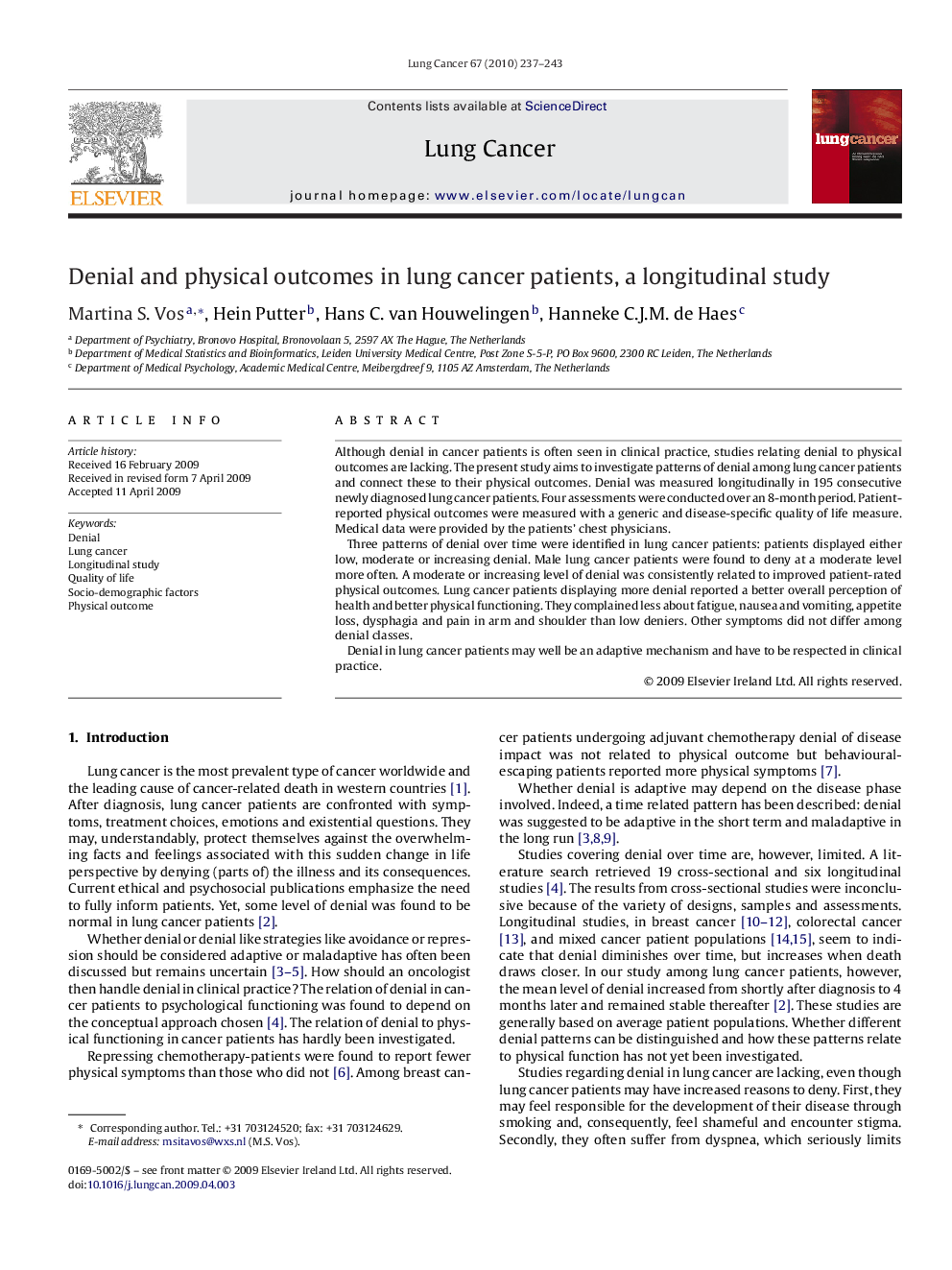| Article ID | Journal | Published Year | Pages | File Type |
|---|---|---|---|---|
| 2142842 | Lung Cancer | 2010 | 7 Pages |
Although denial in cancer patients is often seen in clinical practice, studies relating denial to physical outcomes are lacking. The present study aims to investigate patterns of denial among lung cancer patients and connect these to their physical outcomes. Denial was measured longitudinally in 195 consecutive newly diagnosed lung cancer patients. Four assessments were conducted over an 8-month period. Patient-reported physical outcomes were measured with a generic and disease-specific quality of life measure. Medical data were provided by the patients’ chest physicians.Three patterns of denial over time were identified in lung cancer patients: patients displayed either low, moderate or increasing denial. Male lung cancer patients were found to deny at a moderate level more often. A moderate or increasing level of denial was consistently related to improved patient-rated physical outcomes. Lung cancer patients displaying more denial reported a better overall perception of health and better physical functioning. They complained less about fatigue, nausea and vomiting, appetite loss, dysphagia and pain in arm and shoulder than low deniers. Other symptoms did not differ among denial classes.Denial in lung cancer patients may well be an adaptive mechanism and have to be respected in clinical practice.
